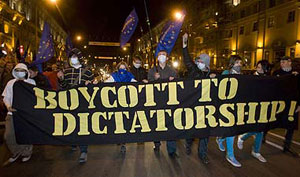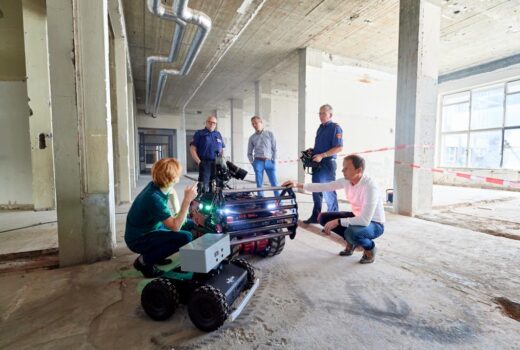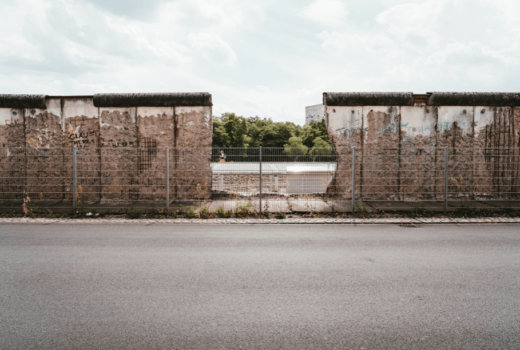Democraten samen tegen dictator

The last dictatorship in Europe
In the beginning of 2011, the next presidential elections willbe held in Belarus. Probably even a few month earlier in 2010. Thecurrent president, Alexander Lukashenko, is expected to try to holdon to his seat by all means. The Parliamentary Assembly of theCouncil of Europe calls upon the Belarusian opposition to unite andcome up with a common “strong democratic candidate” challengingLukashenko.
Although Belarus is not the largest of countries with its 10million citizens, it manages to make it into headline news quitefrequently. This is mainly due to its status as the lastdictatorship in Europe with Alexander Lukashenko being in controlof almost every institution.
Only recently newspapers were reporting on the Belarusian-Russianfight over unpaid gas bills of 200 million. As a consequence Russiareduced its gas supplies passing through Belarus, sparking greatconcern once more amongst EU leaders since 20 % of allEuropean gas is running through Belarusian pipelines. Inold-fashioned Soviet manner Lukashenko offered to repay debts ingoods such as cars, food etc. This was rejected by Russia and onlylater an agreement on partial payments was reached.
Elections in 2011, or even 2010
Having settled this dispute, things might go back to
With a tight grip on his office, Lukashenko managed to win theelections again in 2001 and 2006. International observers witnessedmassive human rights violations, prosecution of oppositionalpoliticians and intimidation of voters in 2001 as well as in 2006.He even acknowledged that he had deliberately manipulatedtheoutcome in 2006. why? In order to please Europe he hadlowerd hissucces from 96 tot 82% of the votes, so he claimed in ‘a late nighttalk’ with jourlanists present.
This situation has led the Council of Europe to step forward in anattempt to ensure that the opposition comes up with at least astrong common candidate. In the Parliamentary Assembly 26 councilmembers, led by Pieter Omtzigt, introduced astatement that “in the past the democratic opposition inBelarus has been fragmented to the extreme”. Therefore, it would becrucial for the Belarusian opposition to unite and agree on a”strong democratic candidate for the next presidential elections”who could challenge Lukashenko effectively.
Meest Gelezen
Vrouwen houden universiteit draaiende, maar krijgen daarvoor geen waardering
Wederom intimidatie van journalisten door universiteit, nu in Delft
Hbo-docent wil wel rolmodel zijn, maar niet eigen moreel kompas opdringen
‘Burgerschapsonderwijs moet ook verplicht worden in hbo en wo’
Raad van State: laat taaltoets nog niet gelden voor hbo-opleidingen



